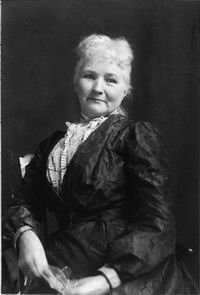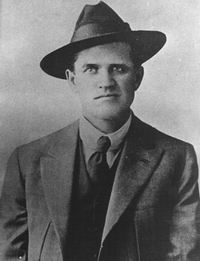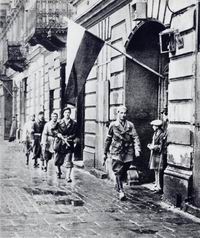|
August 1, 1746
|
|
|
The Act of Proscription comes into effect in Britain. Aimed at crushing the culture of the recently conquered Scots, it makes it illegal to wear “Highland Dress” (tartans and kilts), or to play the bagpipes, and it takes away the right of Highlanders to “gather”. It is accompanied by the Disarming Act, which makes it illegal for Scots to own weapons unless they are in the service of the British.
|
|
August 1, 1834
|
|
|
Slavery becomes illegal in the British Empire.
|
|
August 1, 1837
|

|
|
Birth of Mary Harris (Mother) Jones (1837-1930), American labour and community organizer and Socialist.
|
|
August 1912
|

|
|
U.S. forces invade Nicaragua ‘to protect American interests.’ U.S. troops remain in Nicaragua until August, 1925.
|
|
August 1, 1914
|
|
|
Start of The Great War (World War I). Europe’s imperialist powers set out to conquer each other. By the time the war ends, more than four years later, more than 16 million people will have died, and more than 20 million will have been wounded. Billed as “the war to end all wars”, World War I also sets in motion the conflicts that will result in World War II.
|
|
August 1, 1917
|

|
|
Frank Little, a union organizer with the Industrial Workers of the World (IWW) is lynched by masked vigilantes in Butte, Montana. The police make no effort to find his murderers.
|
|
August 1, 1932
|

|
|
J.S. Woodsworth becomes the first leader of the Co-operative Commonwealth Federation (CCF).
|
|
August 1943
|
|
|
Inmates at the Treblinka extermination camp revolt. Many buildings are burnt to the ground, a number of German soldiers are killed, and 70 inmates escape to freedom, but 1,500 are killed. Gassing operations are interrupted for a month.
|
|
August 1, 1944
|

|
|
Start of the Warsaw Uprising: The Polish resistance starts a nation-wide uprising against the Nazi occupation forces, with Warsaw as the key centre of operations. The uprising is intended to last a few days until the Soviet Red Army reaches Warsaw, but the Red Army fails to move forward and the rebels are left on their own. The uprising continues for 63 days until it is finally crushed by the Nazis. An estimated 16,000 Polish resistance fighters are killed, and between 150,000 and 200,000 civilians are killed, most of them slaughtered by German reprisals. By the beginning of 1945, 85% of Warsaw has been destroyed.
|
|
August 1973
|
|
|
The Canadian Gay Archives are founded by The Body Politic newspaper, with the newspaper’s back files forming the foundation of the archive.
|
|
August 1, 1975
|

|
|
Edward Abbey’s novel The Monkey Wrench Gang is published. It tells the story of a group of people who use sabotage to fight environmental destruction. The novel becomes the inspiration for “monkeywrenchers” who use sabotage and direct action to defend nature and ecosystems.
|

